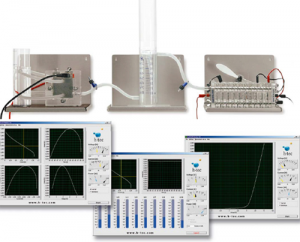Hydrogen Technologies [3 credit course] – MEPP 457
The Hydrogen Technologies course is proposed by the Green Hydrogen lab under the Department of Mechanical Engineering. Twenty-five fourth-year undergraduate students are currently enrolled in the course. Contact Department of Mechanical Engineering, Kathmandu University or write us at ghlab@ku.edu.np for any queries.
Course Guidelines
 The Hydrogen Technologies course intends to provide the student with a broad background in the fundamentals of Hydrogen Technologies. After this course, the student will have a system-level perspective on analyzing, processing, and evaluating the knowledge relating to Hydrogen Technologies. We believe undergraduates studying Hydrogen Technologies as their academic course along with several practical knowledge will develop themselves as an expert and lead the country with this technology.
The Hydrogen Technologies course intends to provide the student with a broad background in the fundamentals of Hydrogen Technologies. After this course, the student will have a system-level perspective on analyzing, processing, and evaluating the knowledge relating to Hydrogen Technologies. We believe undergraduates studying Hydrogen Technologies as their academic course along with several practical knowledge will develop themselves as an expert and lead the country with this technology.
| Credit Hours | 3 cr. |
| Course Offer | Elective course for final year undergraduate students at the first semester for all domains, and masters’ students in DoME |
| Pre-requisite | Basic knowledge of Fluid mechanics, General Chemistry, Experimental Methods and Instrumentation, basic electronics, and appropriate mathematical background. |
| Course Design | Problem-based learning (PBL) methods will be used to drive students to identify and solve a unique problem. The project will be assigned as the learning medium. |
| Learning Methods and Activities | Lectures, Assignments, Laboratory exercises, and Mini-project work. |
| Evaluation | 50% Internal (20% internal exam, 10% laboratory, 20% learning objectives) and 50% Final. |
| Goals | This course is intended to provide the student with a broad background in the fundamentals of Hydrogen Technologies. After this course, the student should have a system-level perspective on analyzing and processing real-time problems relating to Hydrogen Technologies through critical thinking. |
Lecture Outline [22 hrs.]:
- Introduction and Overview [2 hrs.]
Terminologies, Global Energy challenges, Energy Insecurity, Trends, and Innovations for the future.
- Renewable Energy Perspectives [4 hrs.]
Applications of renewable energy for hydrogen production.
Solar energy: Basic Concepts, Solar energy conversion, Solar PV market, Economics, and competitive field, market, and stage of development.
Hydropower: Basic Concepts, Current challenges in hydropower, new energy markets, storage and flexibility, facts, figures, and main actors.
Biogas: Basic concepts, anaerobic digestion (methanisation), usages, and applications of biogas.
Others and new renewable energy sources.
- Hydrogen Production [4 hrs.]
Terminologies, methods, and basic principles. Brown, Blue, and Green Hydrogen Production processes and systems.
Electrolyzers: Definition, Types and principles, reactions, operational considerations, and parameters. Relationship between operating parameters and Electrolysers sub-system. Applications and challenges.
- Storage and Hydrogen Safety [4 hrs.]
Methods of Hydrogen Storage. Advantages, disadvantages, and safety factors associated with each method. Safety Codes. Safety properties. Identification and evaluation of safety hazards. Safe practices in design, material selection, and operation of the hydrogen system. Physical principles and empirical observations for safe practices.
- Fuel Cells [4 hrs.]
Terminologies and basic principles. Basic Chemistry of the Fuel cell. Operation of alkaline and PEM fuel cells. Relationship between operating parameters and fuel cell sub-systems. Installation of a fuel cell. Trends and Innovation for the future.
- Special Topics [4 hrs.]
- End-use and market trends for hydrogen
- Hydrogen R&D opportunities
- Cost and Economics of hydrogen technologies
- Environmental assessments and impacts of Hydrogen Technologies
Laboratory works [15 hrs.]:
- Introduction to lab setup, data acquisition systems, and safety issues
- To record the Current/Voltage characteristic curve of the PEM Electrolyser stack
- To determine the efficiency of the PEM Electrolyser stack
- To record the Current/Voltage characteristic curve of the PEM fuel cell stack.
- To determine the efficiency of the PEM fuel cell stack.
Problem-based Learning [15 hrs.]:
- Understand the Problem: Identify, evaluate, and establish a real case problem
- Explore the curriculum: Gather information, discuss information, generate possible solutions
- Resolve the problem: determine the best fit solution, present the solution, debrief the problem
Text Books:
- Energy Sustainability through Green Energy, Atul Sharma and Sanjay Kumar Kar, 2015
- Power-to-Gas- Renewable Hydrogen Economy for the Energy Transition, Méziane Boudellal, 2018
Course Instructor
Team Leader and
Assistant Professor
Department of Mechanical Engineering
Lab Technician

Mr. Shreeram Thapa
Department of Mechanical Engineering


